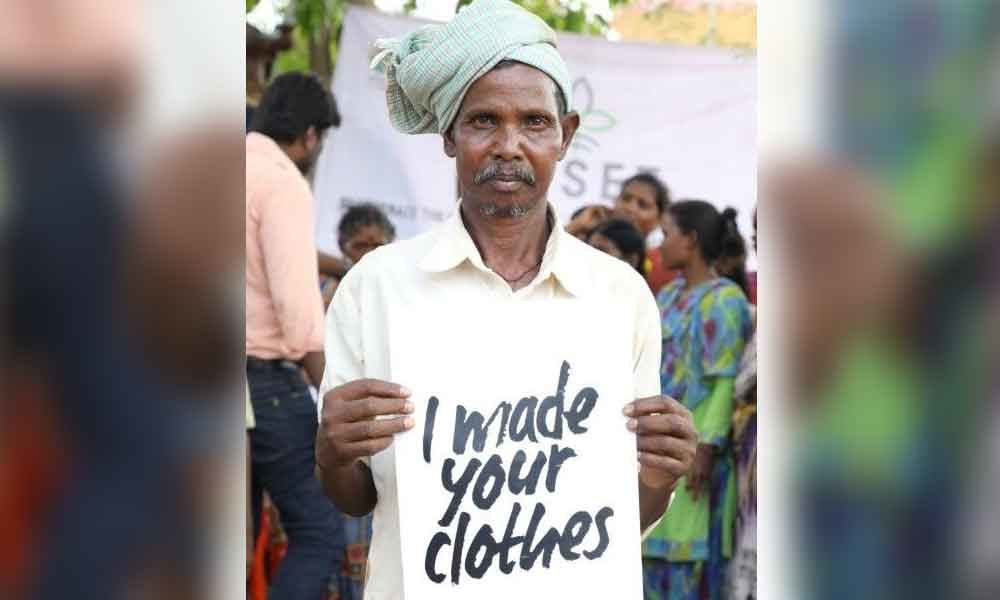Regenerative cotton to reset ecology

232 farmers to make Telugu states proud with this green initiative
Hyderabad: Grameena Vikas Kendram is on a mission to produce regenerative cotton clothes through a global initiative RESET (Regenerate the Environment, Society, and Economy through Textiles).
The Kendram is cultivating cotton in 250 acres of land with 232 farmers in 26 villages of the two Telugu states aiming to create the world's first regenerative cotton value-chain.
This global initiative has been designed keeping in mind about the climate risk management, soil building and other concerns faced by the farmers and aims to cover 62,500 acres and 15,000 farmers in the coming five years.
Textile industry is the most polluting industry after food industry. Although cotton occupies only 5% to 7% of India's gross cropped land, it consumes over 50% of India's pesticides.
Exposure to such toxic chemicals affects the health of farmers and is often carcinogenic. The increase in usage of chemical fertilizers continues to destroy the soil.
To control these toxic emissions and prevent the environment, RESET started producing cotton with regenerative principles by not only focussing on reducing the carbon emissions but also on increasing soil carbon sequestration.
To give a more relatable number, a T-shirt made of conventional cotton uses 2700-3000 litres of water, while its organic counterpart only consumes 300 litres. It is also generating 30% additional income for the tribal cotton growers in the two Telugu states.
Tomorrowland, one of the world's biggest electronic dance music festivals, celebrating their 15th anniversary in Belgium (Europe), aspires to send out a powerful message by opting for sustainable T-shirts for their crew-members.
RESET, a futuristic innovation by Grameena Vikas Kendram, has partnered with Urban Fibres, Belgium to produce 30,000 crew T-shirts for Tomorrowland.
The entire RESET ecosystem with farmers, ginner, spinner, knitter, dyer and garment workers, all located in India, have taken the utmost care at every step to ensure no toxic material is included. Production of Sustainable T-shirts is closely monitored, right from the selection of the cotton seed to the sewing of the label.
At the farm level, no GMOs used and no lethal chemicals like pesticides, herbicides and fertilizers used. These T-shirts were made of 100% cotton as elastane can hinder recycling, cotton labels replaced polyester and unisex models were chosen to avoid surplus along with careful selection of the dyes for fabric and printing. At the end of their life, T-shirts will be collected and recycled into high-quality garments such as jeans.
"The story of your T-shirt does not start at the retail outlet but begins its long journey as a small seed in the hands of a farmer and it is very important for every customer to know how it is produced.
It is the responsibility of the consumer to demand sustainably produced clothes and necessary to know the story behind its production.
At the end, T-shirt is not made to go into a landfill or burnt, but it can be shredded, respun and new clothes can be made from it increasing the life of the cotton.








